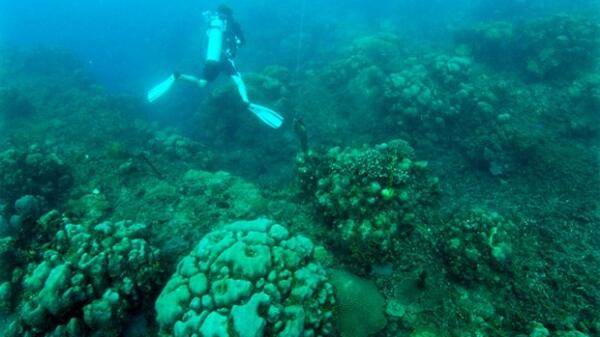Last week three BIOS scientists – Tim Noyes and Dr. Eric Hochberg in the Coral Reef Ecology and Optics Lab [CREOL] and Andrew Collins in the Bermuda Ocean Acidification and Coral Reef Investigation [BEACON] Lab – presented their research at the 12th International Coral Reef Symposium [ICRS] in Cairns, Queensland, Australia.
Bermuda Reefs Healthier Than Those to the South of the Island
December 20, 2012
Colonies of corals build reefs. As stony corals construct new animals on top of themselves, the lower sections die. The skeletons of these hard corals form the structure of the reef. Sand fills in the framework and calcareous algae cements it.
Some of our Achievements in 2012
January 26, 2013
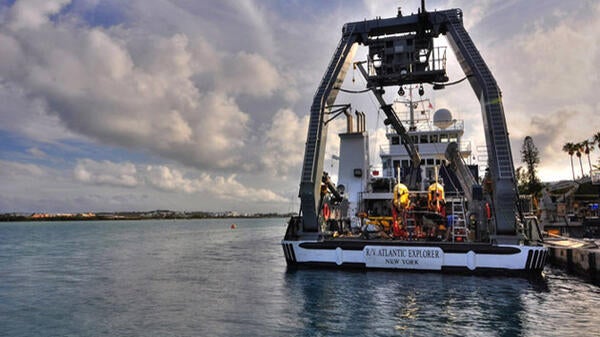
Some of our achievements in 2012 using ocean science for human good include work to:
CREOL Debuts New Lab to Study Reef Ecosystem Efficiency
October 25, 2013
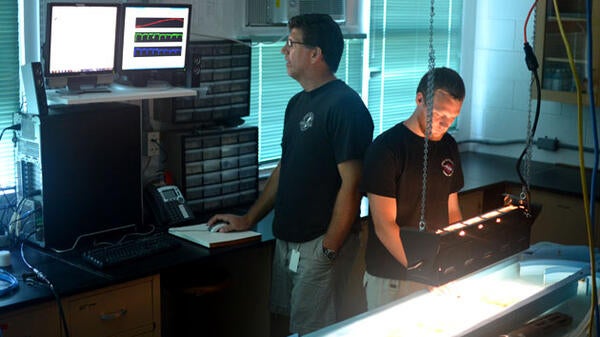
The traditional method for assessing reef health involves fieldwork; that is, going out to the reef in question and taking measurements (e.g., percentages of each coral species, etc.) of the coral, algae, and other bottom types that are present. However, these measurements only present one aspect of health: ecosystem structure. To develop a more complete picture of reef health, scientists also need to understand and be able to assess ecosystem function. In the case of coral reefs, this means quantifying the two main things that reefs do as an ecosystem: primary production (or photosynthesis) and calcification.
Bermuda Program Alumnae Pursue Careers in Science, Law, and Engineering
June 28, 2015
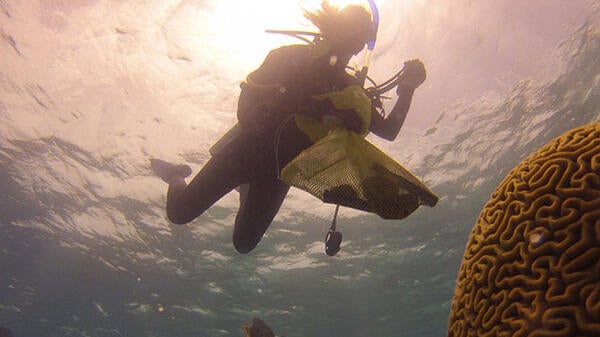
“I call them the Female Dream Team,” said BIOS educator Kaitlin Baird The Bermuda Program, designed for high school and college students, began in 1976 as a way to encourage students to consider careers in marine, atmospheric, and oceanographic sciences. It is part of BIOS’s Ocean Academy, a suite of hands-on programs offered for 10-to 21-year-old Bermudians that centers on science, technology, engineering, and math (STEM) topics. Last year, 1,390 local students and teachers were involved in Ocean Academy programs
BIOS Scientist Provides Updates on NASA Project
September 28, 2018
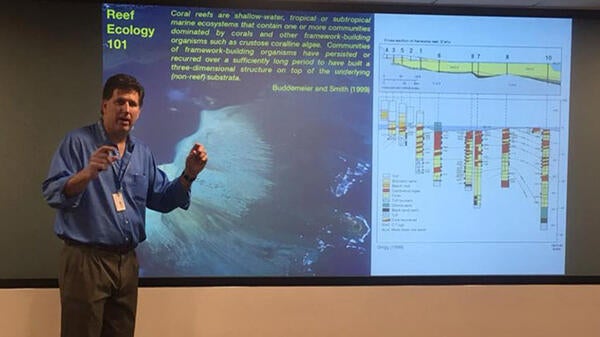
BIOS reef ecologist Eric Hochberg, principal investigator of the COral Reef Airborne Laboratory (CORAL) mission, provided a lunchtime seminar to scientists and staff at NASA headquarters in Washington, D.C. on August 15 to outline the mission’s goals, science, and status.
Following the Light
January 29, 2019
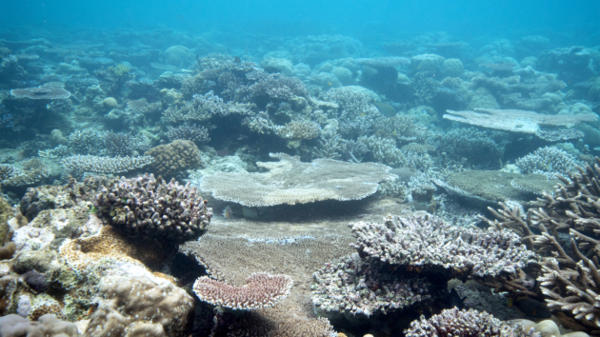
Similar to forests on land, the most important source of energy for tropical shallow water coral reefs is light. Photosynthetic algae, called zooxanthellae, live within the tissues of reef-building corals and provide them with oxygen and the products of photosynthesis, including glucose and amino acids. The corals, in turn, use these products as the energy source for building calcium carbonate skeletons and growing more living tissue. Other ecologically important reef organisms, such as macroalgae and turf algae, depend on light for growth and reproduction as well, making light the driving force behind the growth and overall productivity of coral reef ecosystems.
Does Sunscreen Mean Trouble in Paradise?
March 30, 2020
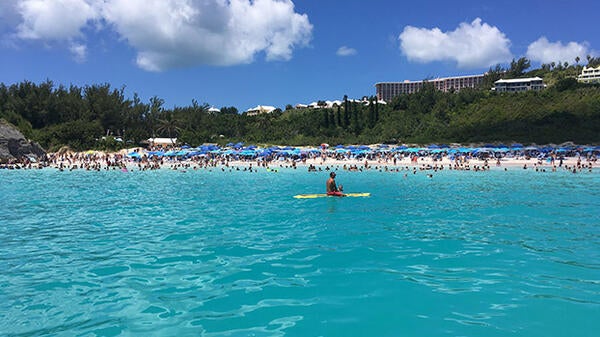
New research is shedding light on the impact of oxybenzone, a chemical filter found in many sunscreens, on Bermuda’s coral reefs. With funding from the Bermuda Government Department of Nature and Environmental Resources and NASA, a team of researchers at BIOS, led by senior scientist and coral reef ecologist Eric Hochberg, conducted a study to characterize the presence of oxybenzone, or benzophenone-3, in Bermuda’s nearshore waters, as well as the impacts on corals from long-term, low-dose exposure to the chemical.
